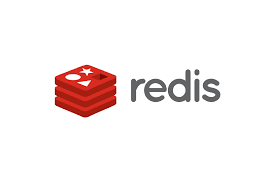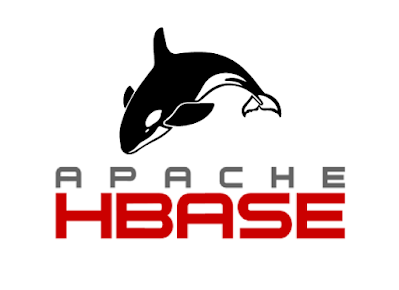Though it's not mandatory for Java or Web developers to learn the NoSQL database, the world is moving in that direction, and both Java and Web developer should be familiar with NoSQL databases. If you are wondering what a NoSQL database is means, then here is a quick overview. A NoSQL database refers to non SQL, non-relational, or not only SQL) that provides a mechanism for storage and retrieval of data, which is modeled in means other than the tabular relations used in relational databases. With Spring 5 introducing Web-Flux, a new non-blocking web framework, the use of a NoSQL database will only grow, but the big question is which NoSQL database to start with?
There are many popular NoSQL options available, like Apache Cassandra, MongoDB, Redis, and Couchbase. Well, it totally depends upon your project; if it's using Cassandra, then you probably need to learn Cassandra, and if it is using MongoDB, then you probably need to learn MongoDB.
But if you are a technical or a solution architect, which makes the decision to choose which NoSQL database to use, you probably need to be familiar with all of them to know their pros and cons and decide to depend upon your situation and their strength.
When it comes to learning, I personally like to get familiar with as many technologies, frameworks, and libraries as possible just to widen my knowledge.
Even if I don't use them regularly, learning them sometimes opens new ideas to my mind, and I learn a thing or two which I can use in my existing project.
If you aspire to become a software or technical architect, then it's expected from you that you are familiar with the latest and greatest technologies, frameworks, and libraries as well. Keeping that in mind, I'll share some of the critical 5 NoSQL databases in this article which you can learn or get familiar with within 2025.
There are many popular NoSQL options available, like Apache Cassandra, MongoDB, Redis, and Couchbase. Well, it totally depends upon your project; if it's using Cassandra, then you probably need to learn Cassandra, and if it is using MongoDB, then you probably need to learn MongoDB.
But if you are a technical or a solution architect, which makes the decision to choose which NoSQL database to use, you probably need to be familiar with all of them to know their pros and cons and decide to depend upon your situation and their strength.
When it comes to learning, I personally like to get familiar with as many technologies, frameworks, and libraries as possible just to widen my knowledge.
Even if I don't use them regularly, learning them sometimes opens new ideas to my mind, and I learn a thing or two which I can use in my existing project.
If you aspire to become a software or technical architect, then it's expected from you that you are familiar with the latest and greatest technologies, frameworks, and libraries as well. Keeping that in mind, I'll share some of the critical 5 NoSQL databases in this article which you can learn or get familiar with within 2025.
5 NoSQL Database Programmers Should Learn in 2025
As I said, there are many NoSQL databases available in the market like Apache Cassandra, MongoDB, Redis, and Couchbase, but each has some special functionality and there are pros and cons of using them. Good knowledge of these is required to make an informed decision based upon your requirements.1. MongoDB
MongoDB is an object-oriented, simple, dynamic, and scalable NoSQL database. It is based on the NoSQL document store model. The data objects are stored as separate documents inside a collection instead of storing the data into the columns and rows of a traditional relational database.Unlike traditional relational databases, MongoDB employs a JSON-like format called BSON to store data in documents, which can have varying structures and fields within the same collection.
This schema-less design allows for rapid development and adaptation to changing data requirements, making MongoDB particularly suitable for projects with evolving needs, such as startups and applications dealing with large amounts of unstructured or semi-structured data like social media platforms, content management systems, and IoT applications.
MongoDB's features include horizontal scalability through sharding, automatic failover and high availability with its replica sets, support for various programming languages, and a robust query language that supports complex queries and aggregation pipelines. Its indexing capabilities further enhance performance by enabling efficient data retrieval.
However, MongoDB's design also requires careful consideration of data modeling and indexing strategies to avoid potential pitfalls like excessive memory consumption or inefficient queries. Nevertheless, its vibrant community, extensive documentation, and strong developer ecosystem make it a powerful choice for modern applications that demand scalability, flexibility, and speed in handling diverse data structures.
2. Apache Cassandra
Apache Cassandra is a high-performance, free and open-source distributed NoSQL database management system designed to handle large amounts of data across many commodity servers, providing high availability with no single point of failure.Apache Cassandra is created to address the limitations of traditional databases in handling big data and ensuring fault tolerance, Cassandra utilizes a peer-to-peer architecture that offers exceptional scalability, high availability, and low latency.
Its unique data model supports structured, semi-structured, and unstructured data, making it suitable for applications requiring high throughput and reliability, such as real-time analytics, IoT, and content delivery networks. Apache Cassandra's decentralized nature and robust architecture contribute to its popularity in modern, data-intensive environments.
The Apache Cassandra database is the right choice when you need scalability and high availability without compromising performance. Linear scalability and proven fault-tolerance on commodity hardware or cloud infrastructure make it the perfect platform for mission-critical data
If you decide to learn Apache Cassandra NoSQL database then Getting Started With Apache Cassandra course on Udemy is one of the better courses to start with.
3. Redis
Redis is an open-source in-memory database project implementing a distributed, in-memory key-value store with optional durability. It can also be used as a cache and message broker. It supports data structures such as strings, hashes, lists, sets, sorted sets with range queries, bitmaps, hyper logs, and geospatial indexes with radius queries.With persistence options and clustering capabilities, Redis offers both data durability and scalability. Its simplicity and speed make it an ideal choice for scenarios demanding rapid data access, such as session management, leaderboards, and real-time messaging, solidifying its role as a pivotal component in modern application architectures.
If you decided to learn Redis in 2025 then Learn Redis from Scratch on Udemy is a nice course to start with.
If you decided to learn Redis in 2025 then Learn Redis from Scratch on Udemy is a nice course to start with.
4. Couchbase
Couchbase Server, originally known as Membase, is an open-source, distributed multi-model NoSQL document-oriented database software package that is optimized for interactive applications. It's designed to tackle the demands of today's applications by providing a distributed architecture that ensures high availability, fault tolerance, and low latency.Couchbase's data model enables developers to work with JSON documents while its SQL-like query language, N1QL, empowers them to perform powerful queries and joins across diverse data types.
Notably, Couchbase offers a unique feature called Multi-Dimensional Scaling (MDS), which allows the separation of query, index, and data services to optimize resource utilization. This is particularly beneficial for fine-tuning performance and scaling based on specific requirements.
With robust support for caching, data replication, and cross-datacenter replication, Couchbase serves as a versatile choice for applications demanding responsive and adaptable data management, like e-commerce, online gaming, and content distribution.
Sorry but I couldn't find a good online course to learn Couchbase, hence you have to learn it from the official tutorials and documentation which can be found on. Btw, they also have a couple of free online training which you can use as a course.
5. Apache HBase
HBase is an open-source, non-relational, distributed database modeled after Google's Bigtable and is written in Java. It is developed as part of the Apache Software Foundation's Apache Hadoop project and runs on top of HDFS (Hadoop Distributed File System), providing Bigtable-like capabilities for Hadoop and optimized for handling vast amounts of sparse data with high availability and fault tolerance. HBase's schema is designed to store and manage large amounts of sparse data efficiently, making it well-suited for applications like time-series data, sensor data, and social media analytics. It supports automatic sharding and replication for seamless scalability and reliability, and its integration with the Hadoop ecosystem allows for powerful data processing capabilities alongside real-time querying.
If you decide to learn Apache HBase then you can also join The Complete Apache HBase Developer Course on Udemy to learn it from scratch.
That's all about some of the best NoSQL databases you can learn and explore in 2025. Even if you are not using any NoSQL database in your current project, it's time to learn them well in advance. They will help you to widen your knowledge and also keep you up-to-date with the latest technology development. Knowing the latest technology development also them while searching job and going for an interview.
That's all about some of the best NoSQL databases you can learn and explore in 2025. Even if you are not using any NoSQL database in your current project, it's time to learn them well in advance. They will help you to widen your knowledge and also keep you up-to-date with the latest technology development. Knowing the latest technology development also them while searching job and going for an interview.
Other Programming Resource articles you may like to explore
- 10 Things Java Programmer Should Learn in 2025
- 5 Free Spring Framework Courses for Java Developers
- The 2025 DevOps Developer RoadMap
- Top 5 Java design patterns courses for experienced Java devs
- 10 courses for Programming/Coding Job Interviews
- 5 Courses to learn Shell Scripting in Linux
- 10 Free Course to Learn Python Programming
- The 2025 Web Developer RoadMap
- 21 Tech Skills Java Developers Can Learn in 2025
- 10 Web Development Skills for Junior developers
- 50+ Data Structure and Algorithms Interview Questions
- How to become a Modern React JS Developer in 2025
- 10 Free Online Course to Learn Java Programming
- 10 Free Courses to Learn Data Structure and Algorithms in Depth
Thanks for reading this article so far. If you like these best NoSQL databases, then please share them with your friends and colleagues. If you have any questions or feedback, then please drop a note.
P. S. - If you are interested in learning NoSQL technology, particularly MongoDB but looking for a free online training course to start with then I highly recommend you check out - MongoDB Essentials - Understand the Basics of Mongo DB course on Udemy. It's completely free and you just need a Udemy account to join this course.















3 comments :
"If you decided to learn Redis in 2020" I suggest you'll also check the Redis Modules https://redislabs.com/redis-enterprise/modules/
If you care about performance and stability under load, try Scylla (http://www.scylladb.com). It's compatible with Cassandra, supporting CQL natively, plus the DynamoDB and Redis APIs.
For web, Node.js and Electron apps I can recommend AceBase (https://github.com/appy-one/acebase) which is a very fast, free and open-source NoSQL database engine with realtime data change notifications and powerful indexing and querying capabilities.
It can even run in the browser and is able to synchronize with external servers and other clients with practically zero configuration. Highly recommended!
Post a Comment